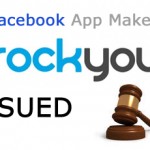 Beijing, China — The Chinese government is famous for its hard-and-fast Internet regulation policies. Chinese authorities says that it has arrested thousands of people over the course of 2009 in an attempt to purge the Internet of pornography and other “harmful information,” vowing tougher online policing in the new year as a key element of “state security,” according to a report.
Beijing, China — The Chinese government is famous for its hard-and-fast Internet regulation policies. Chinese authorities says that it has arrested thousands of people over the course of 2009 in an attempt to purge the Internet of pornography and other “harmful information,” vowing tougher online policing in the new year as a key element of “state security,” according to a report.
China keeps a stringent vigil of the Internet to control what the government considers to be unhealthy content including porn and violence — an effort that has become known as the “Great Firewall of China”.
The crackdown on various types of sites such as pornography has been sporadic in the past. Authorities in December offered rewards of up to 10,000 yuan (1,465 dollars) to Internet users who report websites that feature pornography.
The ministry of public security said late this week that the sweeping effort resulted in 5,394 people had been arrested and that more than 9,000 websites had been deleted for having pornographic content, including 4,186 criminal investigations, a fourfold increase over the year prior. The ministry did not gave any details as to how many people had subsequently been put on trial.
Websites such as YouTube, Facebook and Twitter are all blocked and Google has received a public warning for not censoring itself more thoroughly.
With more than 350 million internet users, the government fears that any small cracks in its administrative body could quickly spiral out of control. In the first six months of 2009, an average of 221,000 Chinese a day started using the internet for the first time, or 153 new users a minute.
The authorities published the figures with a warning that its law enforcement of the internet would intensify in 2010 in order to preserve “state security”.
And those figures could grow still higher. According to Reuters, China’s Ministry of Public Security warned that in 2010 it will escalate punishments for illegal Internet operations, ramp up information monitoring, and press Internet service providers to use preventive technology.
The authorities are also planning to crackdown on the growing number of Chinese hackers and fraudsters who use the internet to spread viruses and steal personal information.
China’s attempt to eliminate porn and other frowned-upon content from the Web are controversial, but they are not new. The country has blocked user-generated content sites such as Facebook, Twitter, and YouTube–though savvy users have found workarounds that allow them to access the sites. And it has successfully persuaded independent companies to comply with its initiative.
The government has placed strict regulations for websites, forcing owners to prove their identity before being allowed to register a name.
“Purifying the internet environment and cracking down on internet crimes is related to long-term state security,” the ministry said.
The authorities says terrorists, separatists and religious extremists used the Internet, telephones and mobile text messages to spread rumours and hatred as the violence broke out.
Earlier this week, limited access to state-run news websites was restored.


